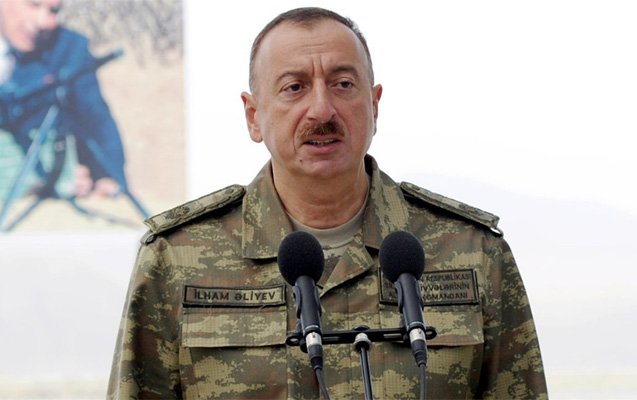Following Azerbaijan’s victory in the Second Nagorno-Karabakh War, insightful analysts have begun to speak of Azerbaijan as a new regional power. Russian liberal Andrei Illarionov expresses this sentiment negatively, while Ibrahim Karagül, editor-in-chief of the semi-official Turkish newspaper Yeni Şafak, writes positively:
“Azerbaijan has become a leader, a new power in the Caucasus. It has overcome the psychology of ‘defense’, discovered a sense of self-worth as a nation and an army, and learned how to transform its economic power into political and military strength. Aliyev is a new powerful leader. He is planning a radical internal transformation. Important steps will be taken that will further strengthen Azerbaijan, and we will witness these processes. Under Aliyev’s administration, Azerbaijan will no longer be a country known only for Karabakh, or a country associated only as the “backyard” of Russia and Iran.
However, it should be understood that in geopolitics, great opportunities are often accompanied by great risks, especially for those who are unable to take advantage of them. Acquiring territory is only half the battle; the other half is using it and keeping it. There is no doubt that Baku will now begin to turn the liberated territories of Karabakh into its showcase. Russia did the same in Crimea, with the essential difference that Azerbaijan has the opportunity to develop territories recognized by the international community, while Russia’s annexation of Crimea immediately led to sanctions and turned it into a kind of “hot potato” for Ukraine.
However, the Crimean case can be instructive for Azerbaijan, especially for its leadership, which brilliantly executed the liberation operation in most of Karabakh. In 2014, after the “Crimea effect,” Vladimir Putin’s rating skyrocketed, and the same has now happened to Ilham Aliyev’s rating in Azerbaijan. However, after six years, polls in 2020 showed the lowest level of support for Putin among Russians during his entire time in power. This is logical, because relying solely on Crimea is unrealistic. Similarly, in Turkey today, despite its foreign policy successes, Recep Tayyip Erdoğan’s party has seen its approval rating fall to a record 30 percent. This is due to the ongoing economic crisis, including the devaluation of the Turkish lira.
In the event of Joe Biden’s almost inevitable ascension to power in the United States, his promise to overthrow Erdogan, and the tightening of Western sanctions against Turkey, the economic situation in Turkey may deteriorate further, which will also affect voter support for the ruling party. President Erdogan is currently trying to take decisive personnel and systemic measures to change this situation, otherwise Turkey’s internal problems could undermine its foreign policy. Ilham Aliyev is likely to have some resilience in the coming years due to his success in the Second Karabakh War.
However, it is crucial that these years are not wasted for the development of the country, that the opportunities gained are really used, and that the problems that troubled Azerbaijan before the war are addressed, and not put on hold in the hope that a victory will bring eternal peace.
It should be understood that those who categorically reject this victory and the rise of Azerbaijan will not sit idle, but will prepare for revenge. This is true not only for the revanchist forces in Armenia and the Armenian Diaspora, but also for the influential world powers, which perceive Turkey as the main threat and now consider Azerbaijan as its outpost in the South Caucasus. The campaign to recognize the independence of the so-called NKR, informational and economic pressure on Azerbaijan, support for anti-government sentiments and forces in the country, and planning for military destabilization amid a possible thaw in the conflict and revision of its outcomes – these are risks that Azerbaijan is already facing. In order to counter them, Azerbaijan must continue to strengthen its army, rebuild the liberated territories, develop the economy and the political system of the country as a whole in order to reduce the existing social and political contradictions.
All this will be possible only if the whole nation, which proved itself during this war, is involved in these processes, but it will be impossible in a clan-based corrupt system with a regime that hopes for eternal effects from a victory. Finally, it must be understood that the role of a regional power always entails some influence on processes beyond its borders.
Talking about Azerbaijan’s transformation into such a power is exactly what its opponents fear, especially with regard to the solidarity with it from Russian Muslims, as well as the wider Turkic peoples, which was demonstrated during this war. It is clear that Azerbaijan, with Russian peacekeepers on its territory, is not in a position to openly confront Moscow. However, what it can afford and what it should do, in our opinion, is to develop its “soft power” in the Russian information, social and political space and use it to change Russian foreign policy in a favorable direction. And once again, such tasks require a corresponding level of personnel capable of solving them, mobilizing the best human resources, both domestic and international. If Azerbaijan succeeds in this, it will retain the liberated territories and its role as a regional power and will be able to reach a new geopolitical level. Armenia, which won the previous war and sought to become the “Israel of the Caucasus,” failed to do so and ultimately lost what it had gained. To avoid repeating its mistakes, Azerbaijan will now have to become the “Turkey of the Caucasus,” while Turkey itself will have to withstand the confrontation that will begin with Joe Biden’s arrival in the White House.

